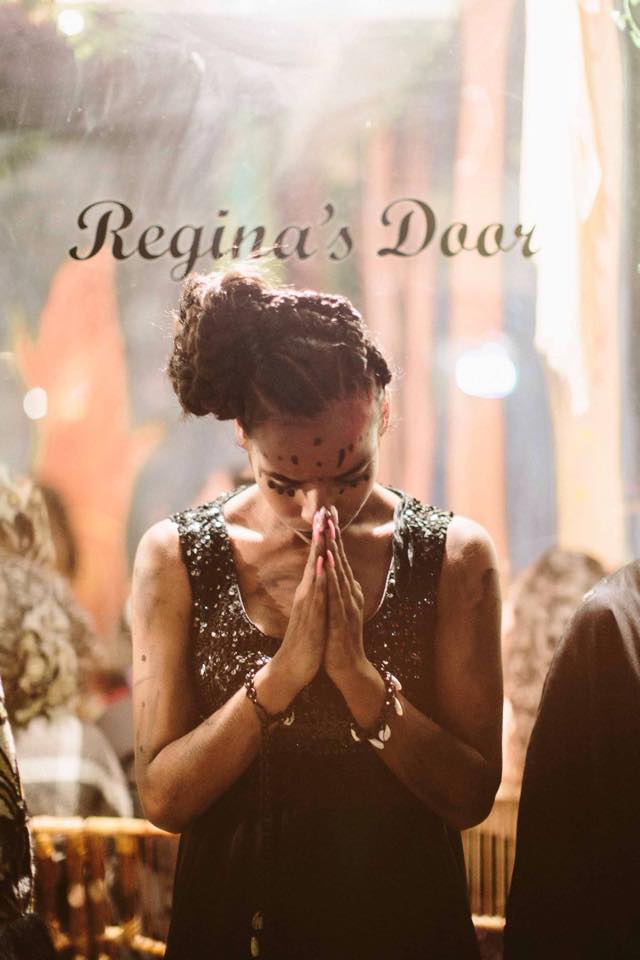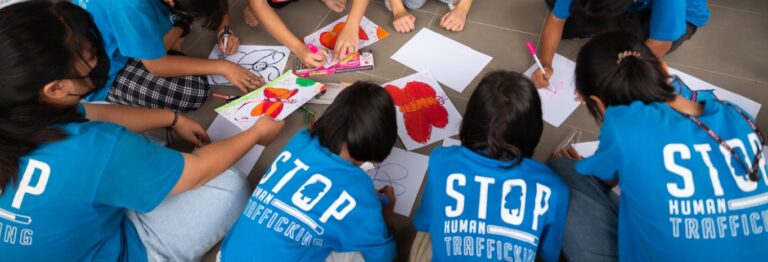It’s Everywhere
Unless you’ve been living under a rock (or taking a break from media, an important practice for maintaining sanity these days), you’ve probably heard of Harvey Weinstein. Co-founder, with his brother Bob, of Miramax, Weinstein was a major Hollywood player for years, producing huge films, such as Pulp Fiction and Good Will Hunting, and hit tv shows, such as Project Runway. But in October 2017, it all came crashing down.
It began when The New York Times and The New Yorker reported that over a dozen women were accusing Weinstein of sexual harassment, assault, and rape. Since then, many others have come forward. No matter the specifics of who knew what and when it’s obvious Weinstein’s behavior was an open secret in Hollywood for years. Moreover, as the #MeToo campaign has shown, this kind of behavior is ubiquitous.
A Culture of Impunity is a Culture of Risk
In 2015, the European Commission published the “Study on High-risk for Trafficking In Human Beings.” The study is particularly important as it focused “on the concrete experience of children and practitioners in the field of rights of the child and child trafficking.” According to the study’s findings, one of the key structural factors putting children at-risk is:
… a general culture and tendency in society to discriminate against women and children, and to tolerate violence and exploitation. The societal attitude can easily influence the family and peer environment, and act as a trigger towards the acceptance of abuse and exploitation, hyper-sexualised behaviour, and emotional disorders among children.
From Harvey Weinstein to Bill O’Reilly, from Bill Clinton to Bill Cosby, from John Besh to a sitting President who has not only admitted to sexual assault but bragged about it, it’s not a far stretch to say we live in a society that tolerates violence toward and the exploitation of women.
Our Sphere of Influence
As our collective attention has been drawn to the issue of sexual harassment and assault, I find myself coming back to a conversation I had last year with the artist, poet, activist, and abolitionist Regina Evans.
With a radiant face, curiously similar to Saint Josephine, Bakhita, the Catholic Church’s patron saint of human trafficking, Regina is understanding, hopeful, and always a bit rambunctious. She’s fierce, too, ready to defend any of the young women and men she works with, but filled with compassion. She’s also busy.

Regina runs a vintage shop, Regina’s Door, across the street from The Freedom Story’s offices, and rarely a week goes by where Rachel, our CEO, and I don’t end up chatting with her for some time. She explains her store as a “sanctuary space for homeless youth, trafficking survivors, at-risk youth, and young creatives.” In it, she mentors young black women, many of whom have been commercially sexually exploited. She supports young black men who are artists, poets, and mystics. To pay the bills she sells vintage clothes. She also makes costumes, runs fashion shows, writes and directs plays and performances – performing one at the UN this past year – hosts educational events on human trafficking and healing nights, and generally does the work of nourishing and caring for all who cross her path – whether that’s a young black woman survivor of human trafficking or a 38-year-old white male trying to wrestle with how he benefits off of a long line of violent racial and sexual oppression.
I always appreciate my conversations with Regina. She offers a unique and dynamic perspective. Below is a section of a conversation (edited for clarity and length) we had last year, which, given what we’re facing as a nation now, seems very relevant. As I read up on current events, I kept coming back to it, asking myself what I can do in my sphere of influence to make sure I don’t continue the cycle of violence and abuse.
Dan: I think there’s a cultural norm where we value certain forms of masculinity and violence over forms of femininity, like your mother had, of resilience and commitment and strength.
Regina: We’ve got a lot to change in our culture. It’s a long journey, especially if there is no accountability.
This is the problem with exploiters. They don’t have to be accountable. They think everything is theirs.
There’s no apology. There’s no accountability. They think I’m able to do this, and I’m able to do it with impunity. How does that thing break? I don’t know.
Dan: There has to be accountability. There has to be justice. In their best form, that’s what laws and the legal system are for.
Regina: Yeah, there has to be accountability. But there are so many people out there like that. We’re trying to do spiritual work and healing, you know, through the Divine, and it’s almost like there needs to be a bashing and breaking open before people are like, “oh, ok.” There has to be something that puts people in a place where they can actually see. What is that? And I think the same thing about white America. There has to be something where they’re like, “ok.” It’s almost like getting snapped out of a coma. So the question is what is that? What does that look like?
Dan: My first answer is that suffering can do that, right?
Regina: Umm-hmm, it can do that.
Dan: But it can also make people’s hearts hard.
Regina: Umm-hmm.
Dan: This may not be a question for you. I don’t know. But I’m still trying to figure out how to use my privilege and my position to…
Regina: I think things are very relational. If you look at people in your sphere that you respect, that’s where you learn, that’s where you grow.
People need to talk to people.
It’s just like toxic masculinity. We see people in our communities, in our circles, who are toxic, but nobody says anything to them. Because they’re a leader, or this or that. So they just spread out, until something happens. There’s something that stops people from talking and speaking out. I think people have to be courageous.
You know one time I challenged a pastor and the Church in general, asking why churches sit empty when little black girls are being sex trafficked on the corners of our city every day. He didn’t like that. He told me that I couldn’t speak out against God’s Church, the Body of Christ, like that. He even said that God would kill me for it. Now, six years, seven, eight, I guess, years later, he is agreeing to have his church used for a site for trafficking awareness training and events. I’m still alive. He’s never apologized for that. That’s what happens. No one stood up on my behalf to a pastor who told me that God was going to kill me for challenging his church, because they were doing nothing about little brown and black girls, 12 and 13, getting raped on the corner.
Dan: Did people know he said that?
Regina: You know me. I told people.
Dan: Do you think they just couldn’t believe it?
Regina: They were like, “oh, you know, just pray about it.” I never went back to that church. That was it for me. But no one challenged him. And that’s what I mean. That’s toxic for him to say that. And to use the Lord to say that. And no one challenged him. No one said we need to have a restorative justice circle. We need to sit down. You need to apologize. You know you do take hits for speaking.
Dan: I was a pastor for a year, you know. I quit for several reasons, but mostly because of the way the leadership at the church handled a situation with a volunteer leader and one of the youth Directors. The youth Director had been getting sexual favors from this volunteer leader, a young woman, and telling her not to tell anyone. He knew she had a history of being sexually abused. He didn’t start requesting sexual favors until after he found that out. He was preying on her. But otherwise, he was a good youth Director. The kids liked him. The church had just recently gone through a split. I don’t know why, really, but the leadership’s response was basically that she was a slut. I remember one of my bosses, a woman, telling me that her clothing was the problem. What was the youth Director supposed to do, when she dressed like that? It was disgusting. I wanted to quit then, but some friends convinced me to stay a while to try and be an advocate for her. My advocacy didn’t work. The youth leader got a two week paid vacation, as “discipline.” She was asked to take a six-month break from the church.
Regina: Did she come back?
Dan: Yeah.
Regina: Well, unfortunately, that’s not unusual. People do go back to their abusers. Or stay with their abusers. It’s called trauma bonding. But your abusers can’t heal you. That’s terrible but that’s not God, that’s just people. Once she gets healed, she’ll be lighting people up. But that’s a dumb move, to go back. Your abusers cannot heal you. Wow. And that’s the thing about impunity. It’s with impunity that this stuff happens. It has to end. It has to stop. I was thinking about my dad, and what he did to my mom. He left a woman alone, in the 60s, with four babies. He left and went off to do his own thing. And people are still like, “oh, your dad’s a good man.” Don’t talk to me about how great my dad is. I think he was a great dude, too, in some ways. But he never took the time to get healed, and so he did some crazy shit. Nobody pulled him up. His family didn’t pull him inside and say you need to get your act together. They just let him do his thing.
I honestly think there is a fury coming forth from the Divine. That’s what I feel like is happening.
There are too many babies that need help. There are too many women that are being murdered, killed, raped, their minds and spirits and bodies are being abused, and no one is standing up and saying anything. No one is being healed. The trauma’s just going from generation to generation. No one is standing up to say this needs to stop. I think there was a time when, in the Church, God was doing all these miracles and stuff. I think God is doing a bunch of miracles in a different way now. I don’t think this is going to happen with humanity alone. We are deeply selfish. We are not courageous. There are not enough of us who have stood up and said this has to end. I think God’s getting ready to climb down the ladder, and be like “wappow!” I think people need to be in position to catch what’s happening. We have a generation that is lost in their own pain. That needs to come out.
I do have one regret. I didn’t get to see my dad before he died, but I’m the one who told him he was going to die. I don’t know why, but he was suffering and we were talking on the phone. I read him a Psalm. And I told him, I think it’s time for you to go. And he said, yup. I tried to get my brother to take me to see him, but he said he’d take me the next week. I knew I needed to go, but no one would take me, and I didn’t push. I didn’t see him before he left. I do regret that.
Dan: A powerful conversation. Maybe you gave him that freedom to go.
Regina: Yeah, maybe. I remember being in a theater and there was an atrium. And there was this one bird, orange, who never sang. He never sang. And the birds all took off with a woosh. And the little orange bird began singing so loud. So loud. Hella loud. My mom called and told me that my dad was dead. And I was like, I know.
Because of the way our consciousness is still shaped by the ideology of slavery, African Americans sometimes have a problematic relationship with skin color – light skin, dark skin. It’s connected to house slaves versus field slaves. House slaves were usually the offspring of the master raping a girl, so they had lighter skin and got to be in the house. Lighter skin black people were usually the first to be educated. It still goes down across the generations. My grandfather, I guess he saw himself in my dad, too much black, and he would tie him up to a poll in the basement and beat him and leave him down there hungry. He would beat my grandma too, so she couldn’t do anything about it. Until one time, she hit him upside the head with a thick cast iron skillet. That was the last time he beat him and her.
Dan: I can’t even imagine how you heal from that trauma.
Regina: Yeah, it’s not easy. So, then he’s like trying to have kids and a family. He couldn’t handle any of that. He was brilliant. Very charismatic. He was a poet. He was a kind man. But he was deeply broken, and so he couldn’t handle anything. Any kind of responsibility, he would just capitulate. He made bad choices. So I was finally able to forgive him. I can’t carry that. I do think that people are responsible for their healing, though. It’s not our responsibility to carry your healing if you’re not going to be a part of it. He wasn’t responsible enough to carry his own healing.
Dan: So much pain.
Regina: Yeah. But something’s going to happen. We’re going to save some babies.
Dan: I need to hope. I can get pretty despairing. Which is weird, I guess, given my privilege. I don’t know. Global Climate Change is already reshaping our world in ways we haven’t come to terms with – the Arab Spring, Syria, the immigration crisis in Europe – and it’s just going to get worse. The internet has changed so much, already. Sometimes I think we’re seeing the end of civilization as we know it. Sorry, I tend to spin out sometimes, go to dark places.
Regina: That’s okay. I do too. I always tell people –
faith and doubt live in the same suitcase.
Thank you, Regina, for sharing your time and insight with us!
Dan Olson is The Freedom Story’s in-house writer and researcher.




